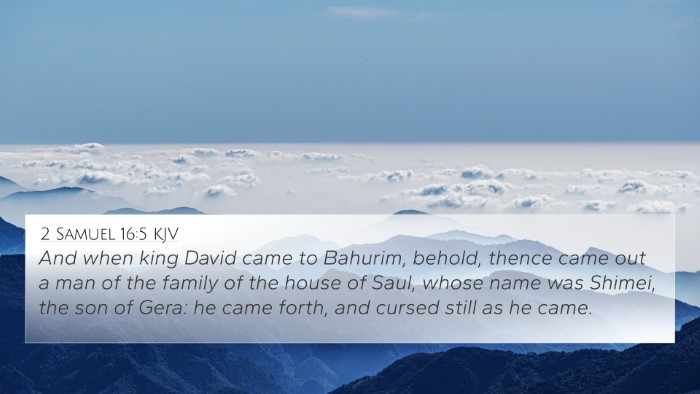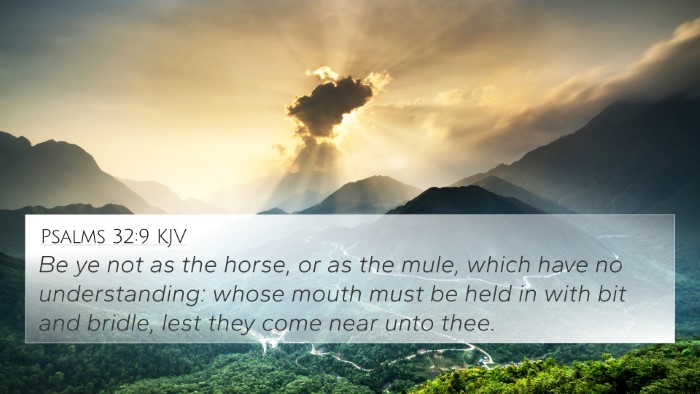Understanding Job 30:11
Job 30:11 states, "For He hath loosed my cord, that I cannot rise: He hath set darkness in my path." This verse is a poignant expression of Job's suffering, highlighting feelings of despair and abandonment. In this passage, Job feels that he has been deprived of strength and guidance.
Summary of Meanings from Public Domain Commentaries
Matthew Henry's Commentary
Matthew Henry offers profound insights into Job's plight, explaining that this verse signifies the extreme distress that Job is experiencing. He reflects on how God has allowed calamity to fall upon Job, leading him to feel tethered and incapable of moving forward. Henry emphasizes Job's perception of divine withdrawal, where darkness symbolizes the absence of God’s favor or guidance in his life.
Albert Barnes' Commentary
Albert Barnes interprets this verse as Job describing his hopelessness. Barnes suggests that the 'cord' represents Job’s strength and freedom, which have been severed by divine intervention. The ‘darkness’ mentioned in this verse can represent trials and tribulations that obscure Job's path, rendering him powerless and lost.
Adam Clarke's Commentary
Adam Clarke notes that Job’s expression of being loosed from his cord indicates a feeling of being cast aside. Clarke points out that this metaphor highlights Job’s isolation and vulnerability. Furthermore, Clarke elaborates on the significance of 'darkness' as a representation of confusion and spiritual desolation, portraying how Job feels overwhelmed by his circumstances.
Key Themes and Reflections
- Despair: Job’s lament showcases the deep emotional turmoil he is facing.
- Perception of Divine Abandonment: The feelings of being cast aside signify a broader struggle with faith amidst suffering.
- Spiritual Darkness: Darkness is a recurring theme in Job's dialogues, symbolizing confusion and loss of direction.
- Loss of Strength: The severing of the cord symbolizes a deep-seated feeling of helplessness.
Bible Verse Cross-References
Several Bible verses resonate with the themes found in Job 30:11. Below are key connections that enhance understanding through comparative Bible verse analysis:
- Psalm 88:6-8 - Expresses feelings of abandonment and despair similar to Job's sentiments.
- Isaiah 50:10 - Discusses walking in darkness without light, echoing Job's experience of divine silence.
- Lamentations 3:2 - Highlights the feeling of being led into darkness, paralleling Job's sense of being lost.
- Psalms 22:1 - The cry of abandonment resonates deeply with Job's reflections in his suffering.
- 2 Corinthians 12:7-10 - Illustrates God's purpose in weakness, providing a broader perspective on Job’s trials.
- Matthew 27:46 - On the cross, Jesus echoes Job's abandonment, demonstrating a connection in suffering.
- Job 19:13-20 - Further reveals Job’s feeling of isolation and the intensity of his trials.
Tools for Bible Cross-Referencing
Understanding cross-references can aid in deepening one's engagement with Biblical texts. Here are some effective methods:
- Bible Concordance: A vital tool for locating scriptures related to key themes.
- Cross-reference Bible study: Helps identify links between both Testaments.
- Bible reference resources: Facilitates the discovery of thematic connections.
- Bible chain references: Enables tracing of themes throughout scripture.
Using Cross-References Effectively
For a richer understanding of the Bible, consider the following approaches:
- How to find cross-references in the Bible: Look for similar keywords or themes across scripture.
- Identifying connections between Old and New Testament: Focus on thematic parallels.
- Interpreting Biblical themes through cross-references: Use linking scriptures to illuminate a passage.
Conclusion
Job 30:11 serves as a powerful reminder of the trials an individual may face, illustrating deep themes of despair and spiritual darkness. By examining related scriptures, one can gain a fuller perspective on Job’s experiences and the overarching narrative of suffering in the Bible. Through proper cross-referencing and comparative analysis, readers can uncover profound connections that enrich their understanding of God's Word.











